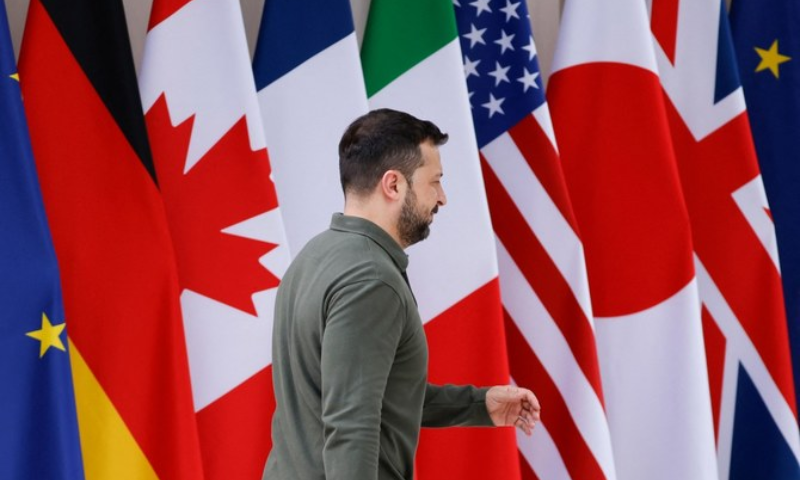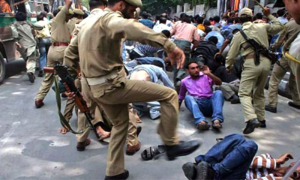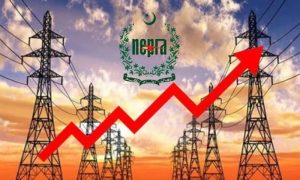BUERGENSTOCK, Switzerland: World leaders will gather this weekend at the Swiss mountaintop resort of Buergenstock to explore ways to end the ongoing conflict in Ukraine, the deadliest in Europe since World War II.
Ukrainian President Volodymyr Zelensky will be joined by prominent leaders such as US Vice President Kamala Harris, French President Emmanuel Macron, and the leaders of Germany, Italy, Britain, Canada, and Japan. However, Russia and China will notably be absent from the summit.
The summit, scheduled for June 15-16, aims to bolster support for Ukraine as the war enters its third year. Despite significant Ukrainian lobbying, China, a major consumer of Russian oil, will not be represented. Conversely, countries like India, Turkiye, and Hungary, which maintain friendly ties with Russia, will send delegations or foreign ministers.
“This meeting is already a result,” Zelensky remarked in Berlin, acknowledging the difficulty of sustaining international support as the prolonged conflict continues. Zelensky’s visit to Saudi Arabia to discuss the summit with Crown Prince Mohammed bin Salman underscores the significance of this diplomatic effort, although Saudi Arabia’s participation remains unconfirmed.
Political scientist Ulrich Schmid from the University of St. Gallen described the summit as “a mixed bag,” highlighting both the notable support from some nations and China’s absence. Schmid questioned the feasibility of achieving peace as long as Russian President Vladimir Putin remains in power.
Approximately 90 states and organizations have confirmed their attendance at the summit, aimed at creating a pathway to peace in Ukraine. The summit follows Zelensky’s 10-point peace plan presented in late 2022 and subsequent preparatory meetings. However, the recent war in Gaza and Moscow’s attempts to undermine the summit’s legitimacy have challenged its momentum.
Russia, which initiated its military operation in Ukraine on February 24, 2022, dismissed the summit as “futile” and criticized it for not including Moscow. Russia views its actions in Ukraine as part of a broader struggle against the West, which it accuses of attempting to subjugate Russia. Conversely, Kyiv and its allies accuse Russia of conducting an illegal war of conquest.
Despite some traction for Zelensky’s peace proposal, with China and several “Global South” nations showing interest, the Swiss summit faces significant obstacles. China, along with Brazil, advocates for a peace plan involving both Ukraine and Russia. Beijing’s decision to skip the Swiss summit has frustrated Kyiv, with Zelensky accusing China of aiding Russia’s efforts to disrupt the meeting.
The summit arrives at a challenging time for Ukraine, with Russian troops controlling about 18% of Ukrainian territory and advancing in the east. Given the complexities and entrenched positions, the summit will avoid territorial disputes and focus on universally acceptable aspects of Zelensky’s plan, such as food security, nuclear safety, freedom of navigation, and prisoner exchanges.
Discussions at the summit will also consider the venue and timing for future talks. Andriy Yermak, head of Zelensky’s office, indicated that many countries are interested in continuing the dialogue and suggested the possibility of inviting a Russian representative to future summits. Switzerland hopes the Buergenstock summit will pave the way for a comprehensive peace process involving Russia.
Amid this diplomatic activity, Zelensky is attending the G7 summit in Italy and will push for further progress at upcoming European Union and NATO summits. Supporters of Ukraine plan events in Lucerne to highlight the war’s humanitarian costs and call for the return of prisoners and children taken to Russia. The Swiss summit aims to conclude with a joint statement, provided a consensus can be reached among the participants.























